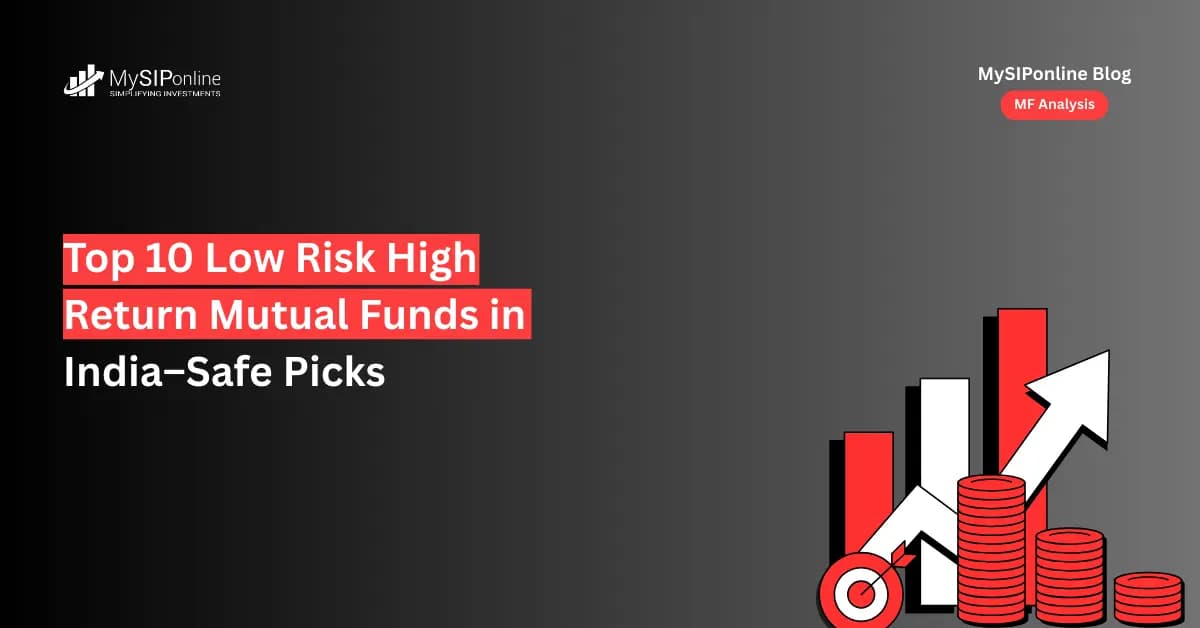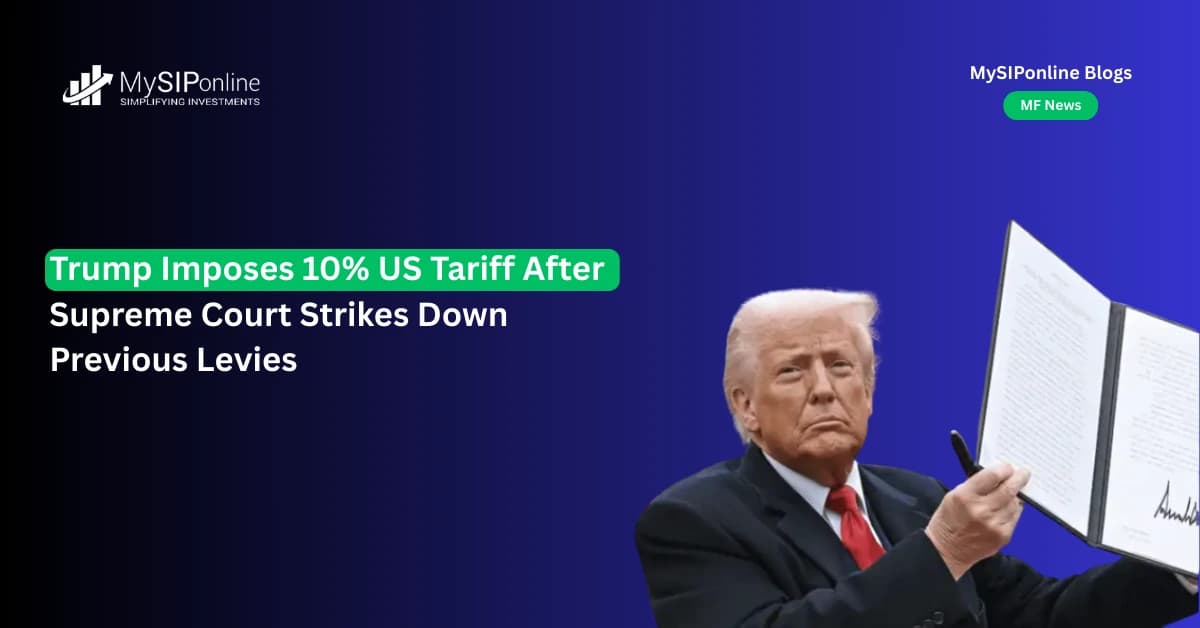Table of Contents
- ICICI Prudential Multi-Asset Fund - Growth
- SBI Long Term Equity Fund - Regular Plan- Growth
- HDFC Top 100 Fund - Growth Option - Regular Plan
- HDFC Balanced Advantage Fund - Growth Plan
- Parag Parikh Flexi Cap Fund Regular-Growth
Introduction
Today, we're looking at how big problems between countries, like the growing tensions between Iran and Israel, are affecting the Indian stock market. Even though things in India are stable, these global issues can still have a big impact. This Monday, for example, the stock market suddenly dropped because of these conflicts. Stay with us as we explore what this means right now and what it could mean for India's economy in the future, including its Mutual Funds. Are these changes just for a short time, or could they last longer? Let's discover this together! Still, an important question remains: how will this battle affect the market in the long run?
What is the issue between Iran and Israel?
Since the onset of the war between Israel and Iran, various rumors have surfaced regarding the main cause of this conflict. Let's explore the facts surrounding this issue to know the true reason behind the dispute.
- Ongoing tensions between Iran and Israel have worsened the already volatile situation in the Middle East, which has been tense since the Israel-Hamas conflict.
- Iran recently launched over 300 drones and missiles targeting military sites in Israel, marking significant expanding clashes.
- The attack was reportedly in reaction to Iran's belief that Israel had attacked its embassy in Syria on April 1, highlighting the two nations' historical conflict.
- Iran's strong posture and military operations have raised fears about more violence and instability in the weak Middle East.
- The war has caused worldwide concern and raised concerns of a larger worldwide war with serious implications.
- Other regional actors' involvement and their respective interests have further complicated the situation, adding layers of complexity to an already volatile region.
- The international community closely monitors developments, mindful of the potential for the conflict to spill over and impact global stability.
- This latest development serves as a sharp reminder of the Middle East's ongoing problems and hazards, highlighting the urgent need for negotiations to reduce tensions and build long-term peace and security in the area.
In summary, the increasing tensions between Iran and Israel highlight the importance of finding peaceful solutions to bring stability to the volatile Middle East.
- 100% Paperless
- No Transaction Charges
- Easy to Invest
- Safe & Secure
Will Israel Iran war affect the Indian stock market?
The world is worried about tensions between Iran and Israel, and India might feel the effects too. These geopolitical tensions are not positive for the world market and India can’t keep itself safe from it. The severity of the damage depends upon the situation of war. If more countries are involved in it then it could be very severe for all the markets in the world else focus will shift to the USA outlook and Indian Q4 results.
Impact On Crude Oil: If tensions between Iran and Israel escalate, oil supplies may be disrupted because Iran is the third largest oil producer in OPEC countries. This could hurt the Indian stock market and economy, as India relies mostly on imported oil. Rising oil prices might increase inflation and widen India's foreign trade deficit.
Shift of Money to Safe or Risk-Free Assets: During uncertain times in the global financial markets, investors often turn to gold and silver as safe-haven assets. As risks increase, more investors are likely to shift their money from riskier investments to these safer options.
High Volatility: If tensions between Iran and Israel worsen, global financial markets could be disrupted, leading to falling equity prices and more uncertainty. In India, the volatility index increased by 8% on Monday, showing increased market volatility.
Sentimental Impact: Negative investor sentiment might slow the market for a while. Liquidity issues could arise from delayed US Fed rate cuts and rising commodity prices, along with foreign investors selling off their shares. However, domestic and retail investors could help keep the market stable.
Conclusion: The rise of Oil Prices and Inflation is still a big part of the economy and any impact on these can damage the fundamentals of the economy. Hence growth and margins of the corporates will be impacted in the medium term. That brings negative sentiments among the investors which could take down the market momentum and strength for the medium term. According to many analyst markets still seem overvalued from their perspective therefore if the market falls then the correction will be very sharp.
- Zero Fees
- Free KYC Check
- Best SIP Plans
- Track & Manage Investments
What Should Investor Do?
In times of conflict such as these, Indian investors may feel exposed to the impacts of war, let's identify what are the necessary precautions that will safeguard your investments.
Think Long-Term
Stick to your long-term investing objectives and avoid reacting recklessly to short-term occurrences. If you're not comfortable with more risk, consider switching to safer choices.
Diversified Investments
Spread investments across various asset classes like equities, bonds, or Hybrid Mutual Funds to reduce risk during geopolitical unrest.
Multi-Asset Allocation Funds
During times of geopolitical tensions, Multi-Asset Allocation Funds are seen as a safe choice for investors. These funds usually include assets like gold, which is known for its stability during uncertain times.
By spreading investments across different types of assets, these funds reduce risk and help keep returns steady.
Increase Risk Tolerance
Assess and potentially increase your risk tolerance to take advantage of higher-return opportunities.
Discipline with SIP
Stay disciplined with Systematic Investment Plans to benefit from market downturns by buying assets at lower prices.
Seek Purchase Opportunities
During market downturns, look for excellent assets at discounted rates, but conduct thorough research before investing.
By following these strategies, investors can navigate geopolitical uncertainty and stay on track to meet their financial objectives.
Conclusion
Explore the top-performing Multi-Asset Allocation Funds by reading our latest blog post featuring the Best Multi-Asset Allocation Funds of 2024.
Begin your investment journey with Systematic Online SIP to achieve your financial goals systematically and consistently.











